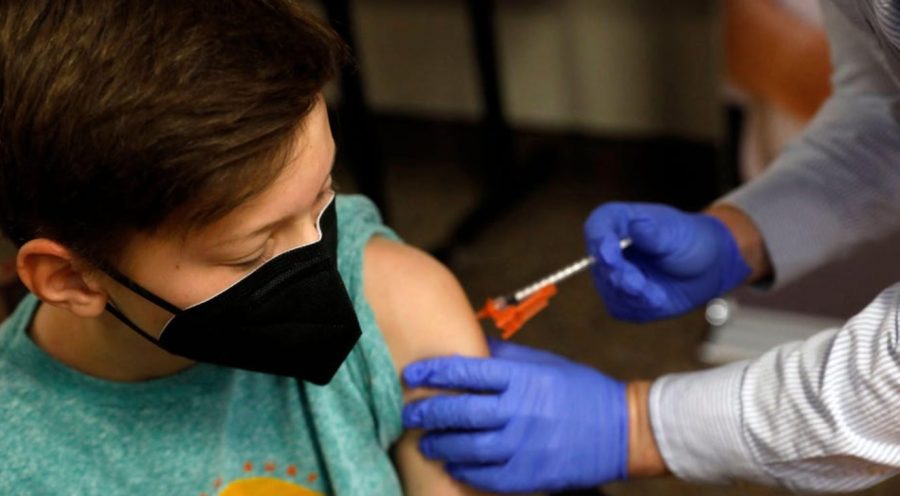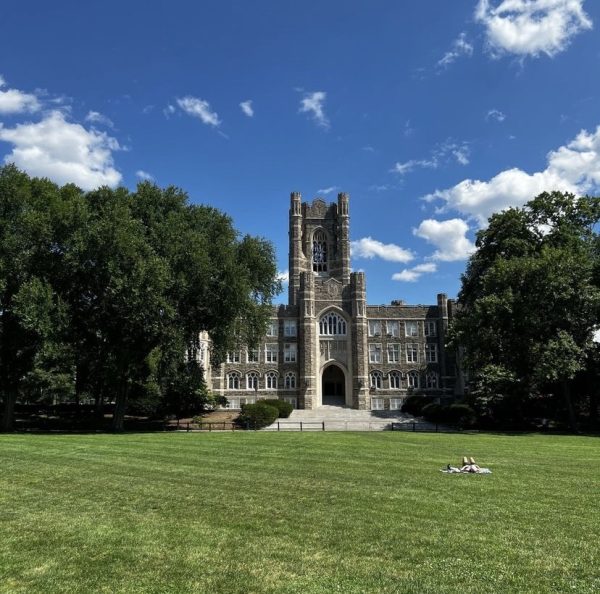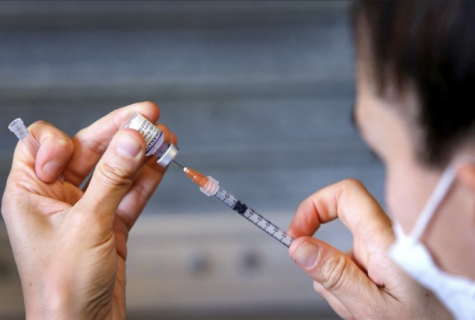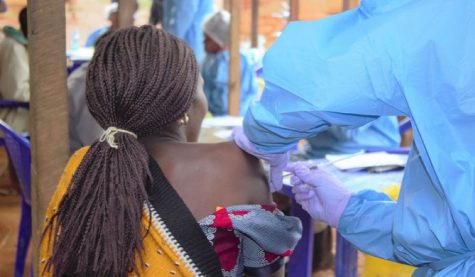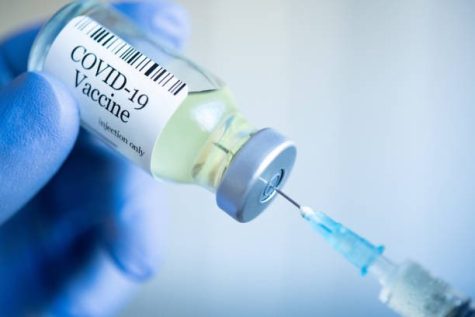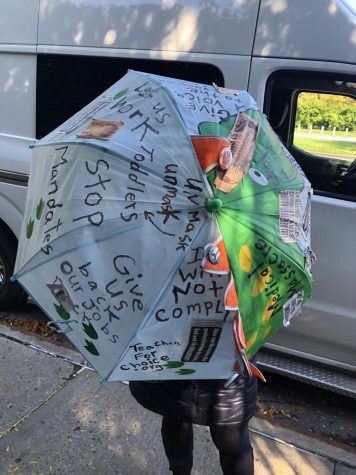COVID-19 Era Children Might Face Same Uncertainties as Post-9/11 Generation
I lost the last semester of my senior year to the COVID-19 pandemic. Yes, I know everyone’s tired of hearing about the plight of the class of 2020, but hang in there – I promise there’s a point. I missed out on memories that I had been looking forward to for all of high school, if not my entire K-12 journey: competitions, a traditional, tear-filled graduation and seeing the clock count down on the last day of school and my childhood. I didn’t get to experience those things and I’ve made my peace with that. But kids just starting their educational adventure don’t even know what they’re missing out on.
I feel like such a grandmother writing, “kids these days don’t know what they’re missing,” but it’s true. Their childhood looks nothing like mine or any other average childhood depicted in the media, that is, outside the realm of dystopian fiction.
It goes without saying that the COVID-19 pandemic threw a wrench in everybody’s plans and experiences, but kids who have spent the majority of their conscious life washing hands for a diligent 30 seconds and panicking if they hear a cough in the distance don’t know any other status quo. They don’t know a world of traditional trick-or-treating and wearing masks for spooky effects, not safety.
Parents and children are hoping that the newly FDA-approved vaccine for children aged five to 11 will allow younger children to have classic childhood experiences, like field trips and birthday parties. One parent, Mabel Cordero Leathem, is excited to introduce her six-year-old daughter to the indescribable experience that is one’s first sleepover, reports NPR. “[To] me the idea of having another child [from another family] in my home, you know, making them breakfast, sharing our air … that’s like the closest you can get, right? And it’s just so joyful,” says Cordero Leathem.
The FDA authorized Pfizer-BioNTech’s COVID-19 vaccine for children aged five to 11 in late October. Within days of the vaccine’s authorization, 900,000 kids, or 3% of American children, got their first dose. Researchers believe that those numbers are now in the millions.
There are few differences between the children’s dosages and the ones intended for adults. Kids’ doses will be smaller than adults’ “with different packaging and smaller needles.”
Unsurprisingly, some parents are still wary of having their children vaccinated despite these minor variations. Parents are roughly split into three factions: 27% are ready to vaccinate their children and get back to life as we knew it, 30% will “definitely not” get the vaccine and 33% are waiting to see how effective the doses are, according to a Kaiser Family Foundation study.
While it is an important step that children can now be vaccinated against COVID-19 and enjoy some of the normal childhood experiences from the “before times,” this progress does not erase the trauma that growing up in global turmoil can cause.
Young children are already exhibiting signs of depression, anxiety or both, as well as feelings of helplessness and fear, according to a study from the National Institutes of Health. The same study reports that “during infancy, early childhood or even in adolescence, the central nervous system … is in a vulnerable developmental window, in which any stressful challenges at the time of critical periods can trigger short-and long-term physiological, cognitive and behavioral damages.”
A New York Times article titled “Will the Pandemic Socially Stunt My Kid?” voiced the concerns of many parents: growing up in isolating times can affect socialization skills and things as simple as recognizing facial cues. Thankfully, Erika Hernandez, a postdoctoral scholar of social development at Penn State University, eased parents’ concerns. She says that “development is a lifelong process. There’s not a skill or domain in which children can’t get better or work at.”
While the socialization and development of our nation’s youth is justifiably a big concern, it is not the only one. During the pandemic, child and domestic abuse cases skyrocketed. Stress is one of the main triggers behind domestic and child abuse, and there was no shortage of stress in 2020, ranging from anxiety over the virus itself, loss of income or just built-up tension from being with the same people for an extended, uninterrupted period of time.
U.S. News reports that “physical abuse of school-aged kids tripled during the early months of the pandemic when widespread stay-at-home orders were in effect.” Before the outbreak of COVID-19, children had the chance to escape abusive situations, at least for a little bit, when they went to school, but this obviously was not an option while quarantining. They didn’t just lose this physical safe-haven, but they also lost direct interactions with teachers and other school staff who are trained to help children emotionally and developmentally, as well as look for signs that things are not okay at home.
There are parallels between Gen Z kids who grew up in a post-9/11 world and Gen C, or generation COVID, who will grow up in a post-pandemic world. Zoomers grew up after 9/11, which completely changed how people view and confront the world around them. Zoomers are often described as an anxious and depressed group, citing worries about terrorism, gun violence and climate change as reasons for their feelings. Gen C kids will also grow up after a monumental line-in-the-sand event and it will be interesting to see if they carry the same mental health issues as those in their fore-generation or if they will forge a new path entirely.
Hopefully, they will make their own way. Frankly, being a member of Gen Z is exhausting, and I truly hope that Gen C will have the tools to talk about their mental state earlier than we did. Who knows? Maybe by the time they get to high school they won’t be looking forward to the same things that we did. Maybe growing up after the pandemic will give them insight to create new, better experiences.
Nicole Braun, FCRH ’24, is undecided from Saddle River, N.J.
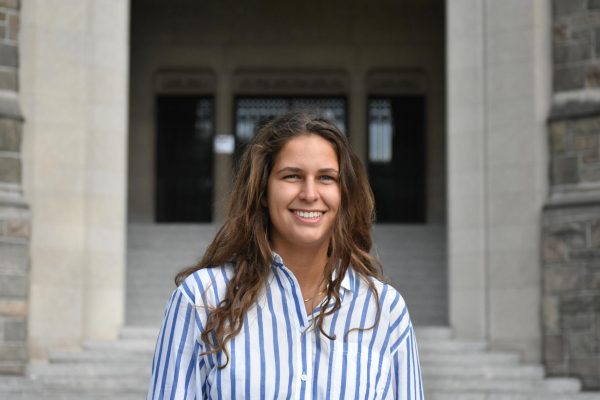
Nicole Braun is a senior from Saddle River, N.J. and she is thrilled to be a member of Volume 105! Her love for writing and editing led her to begin writing...





































































































































































































